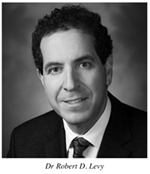Guest editorial: The hope and promise of transplantation
Since the introduction of organ transplantation with the first successful kidney transplant between identical twins in 1954, the story of transplantation has been characterized by dramatic progress and widespread optimism.


Since the introduction of organ transplantation with the first successful kidney transplant between identical twins in 1954, the story of transplantation has been characterized by dramatic progress and widespread optimism.
Organ transplantation has offered the hope of longer life and the promise of enhanced quality of life to hundreds of thousands of patients. Today organ transplantation is a standard treatment for kidney failure, liver disorders, cardiovascular disease, end-stage pulmonary disease, and diabetes, among other conditions.
While prospects have improved substantially, significant challenges remain. The two major barriers to the overall success of transplantation are transplant rejection and the shortage of donor organs.
Improvements in immunosuppressive drugs and clinical transplant care have led to excellent short-term patient and graft survival rates. However, long-term survival rates have improved relatively little in the past two decades and continue to be a challenge.
Complicating the situation is the need for immunosuppressive medications with their associated side effects including susceptibility to infections, kidney dysfunction, dyslipidemia, hypertension, and increased propensity to malignancy.
Strategies that consistently induce transplant tolerance, improve graft outcomes, and eliminate the need for ongoing immunosuppressive therapy are, as yet, unrealized dreams for transplant specialists.
In addition to the problem of transplant rejection, the demand for organ transplants far outstrips the supply of organs available. Unfortunately, many candidates continue to die while awaiting a suitable organ.
BC organ transplantation history
In 1968, the first kidney transplant in British Columbia was performed at Vancouver General Hospital. By the mid-1980s, kidneys were still the only solid organs being transplanted and the province exhibited one of the lowest per capita rates of transplantation in Canada. British Columbia lagged behind other provinces in many aspects of transplantation at that time.
In October 1985, the BC Ministry of Health announced the formation of the British Columbia Transplant Society (BC Transplant) as an advisory body to coordinate both organ transplantation and organ procurement. The early mandate of the organization was to make organ transplantation available to the people of BC in an efficient and cost-effective manner.
Following the establishment of BC Transplant, a comprehensive program of multiorgan procurement and transplantation began to take shape. A second renal transplant program was established at St. Paul’s Hospital in 1986.
In December 1988, the first heart transplant in BC was performed, followed by initiation of the liver transplant and lung transplant programs a year later. In 1989, BC Transplant initiated regional post-transplant clinics outside the Lower Mainland as part of its phased development to better meet the needs of patients across the province.
In the past 20 years, the provincial rate of transplantation has increased dramatically from approximately 30 operations a year in 1985 to 262 in 2008. British Columbia has moved from one of the lowest per capita rates of transplantation to one of the highest of any province in Canada.
This success has largely been based on the success of the living donor kidney transplant programs, while cadaveric organ transplantation has continued to lag behind other jurisdictions despite a number of innovative programs to increase cadaveric organ donor rates.
Today BC Transplant is a comprehensive, nonprofit health care agency with responsibility for the overall funding, direction, development, coordination, follow-up, and evaluation of solid organ transplantation in BC.
Through the Provincial Health Services Authority, BC Transplant is entrusted with coordinating, funding, and monitoring all services associated with solid organ transplantation—pre-transplant assessment, perioperative care, ongoing monitoring, follow-up care, and the distribution of immunosuppressive drugs.
BC Transplant depends largely on resources provided by the BC Ministry of Health Services, yet has the flexibility to allocate these resources within geographic regions to ensure care of the highest quality at the lowest cost.
Kidney transplants are currently performed at three sites: St. Paul’s Hospital, Vancouver General Hospital, and BC Children’s Hospital. The Heart Transplant Program is based at St. Paul’s Hospital, while Vancouver General Hospital is home to the programs for lung, liver, and pancreas and pancreatic islet cell transplants. A province-wide pharmacy program supplies patients with essential immunosuppressive drugs.
BC Transplant and its associated hospital-based transplant programs are nationally recognized for numerous innovative programs in organ transplantation and organ donation.
Transplantation update
The following articles in this issue of the BC Medical Journal are intended to provide a practical state-of-the-art update on transplantation, with a focus on the British Columbia perspective.
In the first article, “Kidney, pancreas, and pancreatic islet transplantation,” Drs Landsberg and Shapiro highlight the current practice as well as innovations and obstacles related to this topic. They note that while outcomes in BC are excellent, the problem of donor organ shortage remains a major challenge.
In response, a number of innovative programs have been developed to expand the pool of both living and deceased donors. Furthermore, allocation policies for deceased donor kidneys have evolved to improve utility while maintaining equity.
In the second article, “Cardiac transplantation in British Columbia,” Drs Stadnick and Ignaszewski review the excellent results of the BC Heart Transplant Program. They explain why cardiac transplantation should be considered in individuals with advanced heart disease who have a poor chance of long-term survival despite optimal medical or surgical therapy.
The authors outline the criteria for heart transplant candidacy as well as common management issues in the post-transplant period, and point out that in view of the scarcity of available donor organs, the utilization of ventricular assist devices is becoming more common in British Columbia.
The third article in this theme issue, “Liver transplantation: Current status in British Columbia,” notes that orthotopic liver transplantation has become an accepted treatment for patients with acute or chronic decompensated liver disease of various causes.
Dr Haque and his colleagues review patient selection and timing of liver transplantation, as well as current indications and contraindications. The authors also emphasize that careful patient selection and optimal organ allocation is critical in the face of the scarcity of this life-saving resource.
In the fourth and final article, “Lung transplantation in British Columbia: A breath of fresh air,” Dr Wilson and her colleagues note that lung transplantation is an excellent option for motivated younger patients with advanced chronic pulmonary diseases who are otherwise in good health.
Ongoing challenges relate once again to the scarcity of organ donors, as well as the optimal management of graft rejection and opportunistic infections. The authors emphasize that a strong collaboration between the transplant clinic and the recipients’ primary care and specialist physicians is essential to ensure optimal long-term outcomes.
In the past few decades, transplantation has emerged from the world of science fiction into the arena of standard clinical care. Enjoy the update!
—Robert D. Levy, MD, FRCPC
Head of Medicine, British Columbia Transplant,
Professor, Respiratory Division, University of British Columbia
—Mark Meloche, MD, FRCSC
Head of Surgery, British Columbia Transplant, Associate Professor, Department of Surgery, University of British Columbia
Just do it!
Based on public opinion surveys, more than 80% of BC residents say they support organ donation and intend to register their decision, yet less than one-fifth of them have done so.
Talk to your family, friends, and patients about organ donation. And most importantly, lead by example. It doesn’t take long to show your support for those waiting. In 3 minutes at most, you can register your decision online at BC’s Organ Donor Registry: www.transplant.bc.ca.

